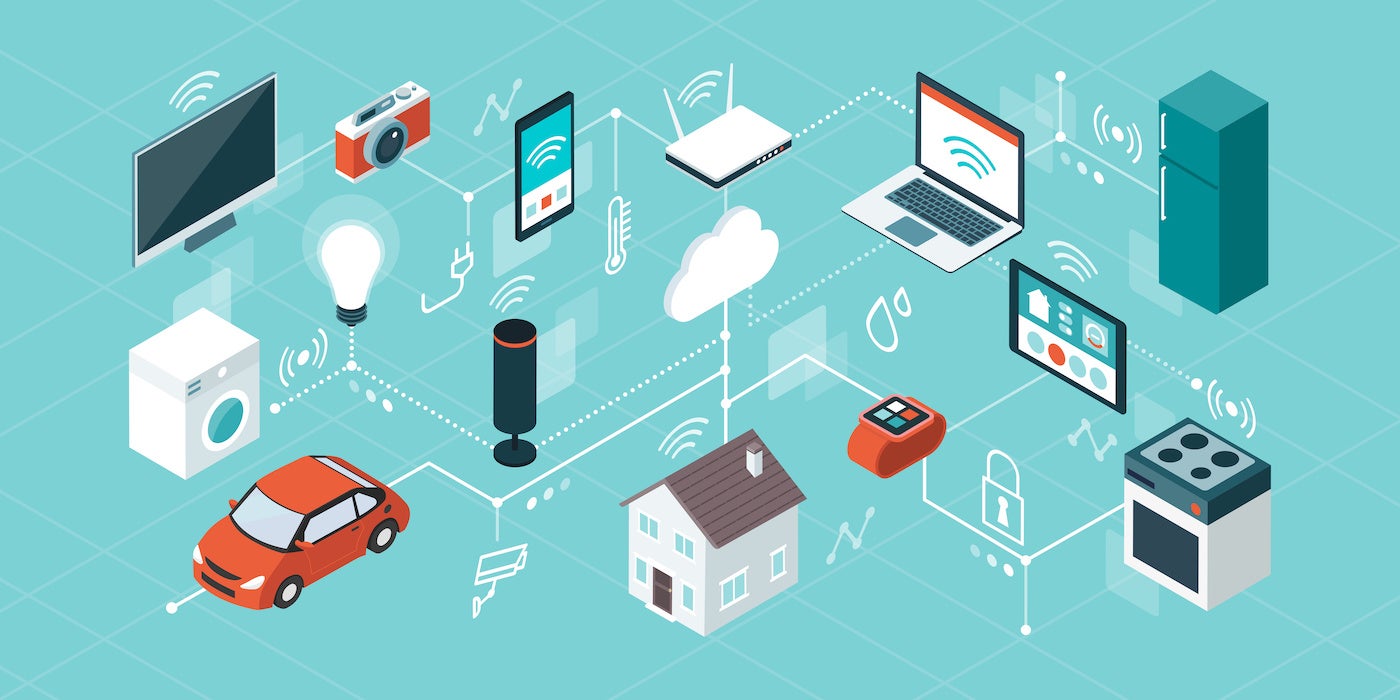Car voice assistance, navigation and the Matter standard top Amazon’s CES 2023 announcements. Plus, how far are we into the age of robots powered by ambient computing?

CES 2023 welcomed many companies back for the first time since the COVID-19 pandemic began. It’s also the year that may be remembered as bringing Matter, a smart home standard, into the spotlight. For Amazon, it’s a chance to introduce a variety of new products, partnerships and connectivity enabled by Matter.
Ring and Sidewalk smart home lines expand
The Ring doorbell line expanded to Car Cam, a forward and backward facing dashboard camera with similar online capabilities to the Ring doorbell. Its smart sensors activate in the case of certain events, whether your car is moving or standing still.
The Ring line now includes Peephole Cam as well, which can be installed on top of a conventional door peephole. It’s designed to expand Ring capability to a rental or apartment environment, Amazon said.
SEE: Tech projects for IT leaders: How to build a home lab, automate your home, install Node-RED and more (free PDF) (TechRepublic)
The company is also expanding its ambitions in regard to Sidewalk, a community network designed to ease the use of smart devices for communities up to half a mile in size. Originally created as a competitor for Apple’s AirTags, Amazon is working on all sorts of uses for neighborhood micro-internet.
Auto products gain Alexa and Siri
Amazon partnered up with Panasonic to work on integration for the SkipGen in-vehicle infotainment system, which will allow both Alexa and Siri voice activation. It equips SkipGen with Alexa’s Auto Software Development Kit to deliver more than 130,000 Alexa skills options.
Here’s a useful one for electric vehicle drivers: Amazon announced that Alexa will now be able to find and navigate to charging stations across the United States.
Disney and Amazon team up for Alexa skills
Visitors to CES 2023 might have seen the Hey Disney! voice assistant, which will soon be available to select Disney Resort hotel rooms and through Echo devices at home. It offers jokes, trivia and soundscapes from a variety of Disney, Pixar and Star Wars characters. It will debut in the U.S. through Alexa Skills Store or the Amazon Kids+ subscription at an unspecified future date.
Alexa will also link up to the Josh.ai home intelligence system in the future, allowing users to link their smart home devices with Josh.ai at the same time while using familiar Alexa commands.
What is Matter?
In addition to these announcements, Amazon plans to add Matter support to smart thermostats, blinds and sensors, and the Alexa iOS app. The Connectivity Standards Alliance created Matter as a unified, open smart home protocol. At CES 2023, Amazon announced that over 100 million in-field devices across 30 different Echo smart speakers and eero router models now have Matter compatibility.
“This is a major inflection point for the (Internet of Things),” said Tobin Richardson, president and CEO of the Connectivity Standards Alliance. “As we become more connected and break down the walls between the digital and physical world, we need to work together to make those connections meaningful. Matter and our membership are tackling this challenge head-on.”
SEE: Hiring Kit: IoT developer (TechRepublic Premium)
Matter 1.0 was released in October 2022.
How Amazon’s CES demos leverage edge computing
Amazon is keen on saying its Astro robot features “new advancements in edge computing.” It’s sparse on detail on what that really means, though. Announced in September 2021, the Astro home assistant robot is one of the wave of products attempting to bring us into a world that looks a lot like the science fiction of the past. It retails for $999.99; although, you can only get it by invitation.
It’s an interesting application and a step toward doing processing and storage in smaller packages — always a tricky dream. Facial recognition is also stored locally, Amazon says.
Ambient computing: Amazon’s stake
Amazon boasted wins for its partner startups, particularly in the area of ambient computing. Ambient computing, also called “quiet computing” or “calm technology,” aims to take IoT to the next level, allowing people to use an array of smart devices without anything so intrusive as a screen.
Using embedded sensors and smart devices, the idea is for a device to have a physical map of the world around it, like Astro, and to seamlessly interact with other devices. This naturally holds interest for the company behind Alexa.
As the smart home becomes more common and features like Alexa are built into new-built houses, it’s possible to see how one company might own interoperable smart devices connected via a proprietary network like Sidewalk.
One of the startups Amazon featured at CES is Labrador Systems, makers of a mobile robot that uses what they call “ambient intelligence.” Labrador uses Alexa voice commands in its Retriever robot, which is designed to provide an extra pair of hands for someone elderly or who has a physical disability. The robot tags physical locations as what CEO Mike Dooley calls “bus stops,” enabling it to travel to a variety of preset locations around one floor of the house.
Ambient computing is an extension of IoT, but it’s also a new way to look at technology, says Deloitte. Instead of focusing on adding more things, we should focus on what those things can do.
“The goal should not be the Internet of Everything,” according to a Deloitte white paper. “It should be the network of some things, deliberately chosen and purposely deployed.”
Meanwhile at CES 2023, Samsung debuted the next phone in its Galaxy A series, MORAI showcased its autonomous driving demos and Qualcomm announced a new system-on-chip for driver assistance and other automotive uses.

